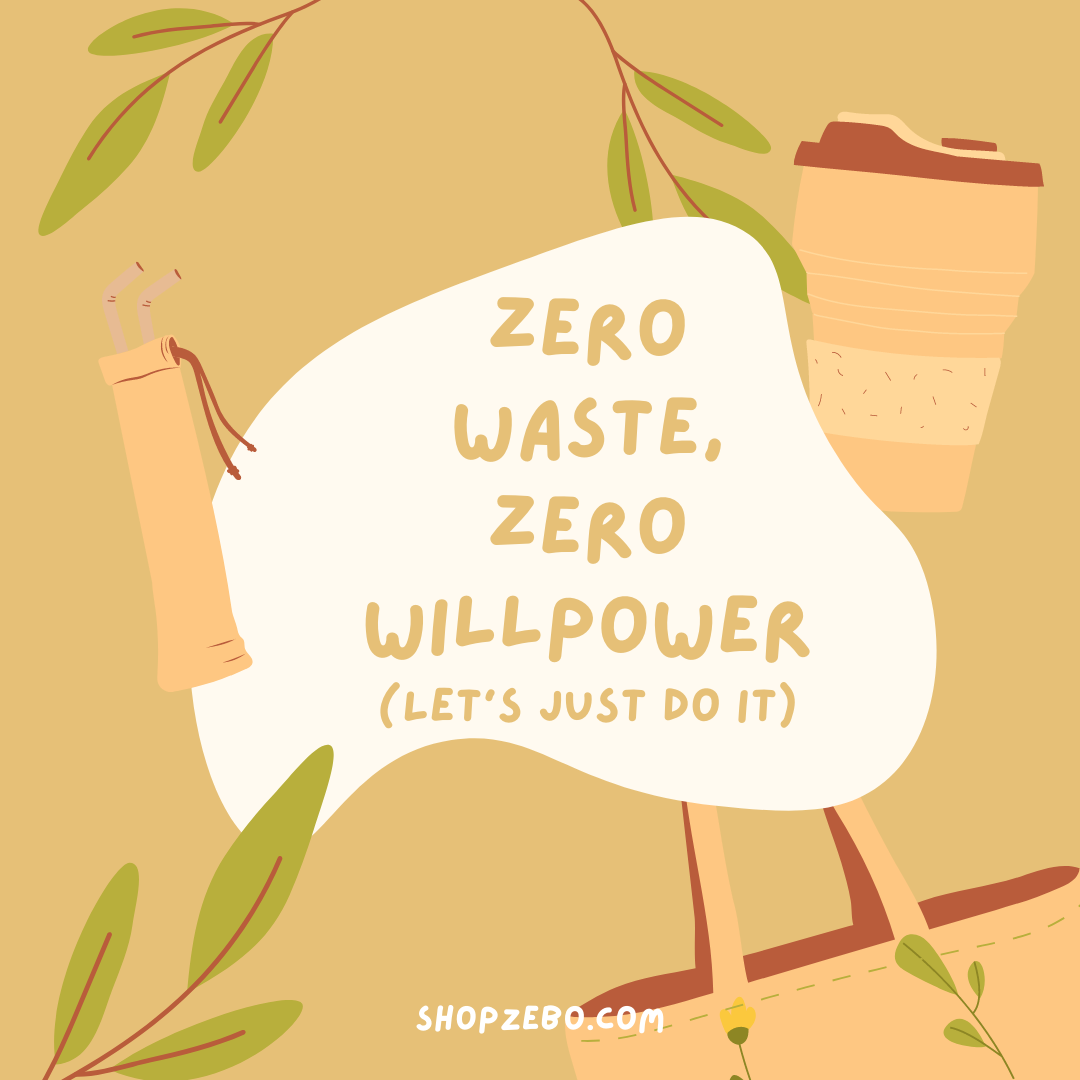August 31, 2021
What I want to propose to you today is a different way of looking at zero waste.
What are people looking for today? Improving ourselves, finding drive, challenging ourselves to become better. Meditation. Diet. Exercise. Wellness.
Remember when a friend feels stuck in their career, or just went through a bad breakup, you might hear them say, "I'm getting a haircut" or "I’ll start working out"? The sentiment is clear: they want change. They want a “new me”.
You may hear "I'm trying zero waste" as a new way of getting unstuck. They'll pursue it, not necessarily out of guilt or climate anxiety, but as a form of self-development. "I'm doing this for me as a personal challenge. I'm doing this to find purpose, to feel more connected to the greater world, to prove to myself that I'm capable of making a difference."
The Challenges of Zero Waste
Like any path towards a worthwhile self-improvement, zero waste comes with its challenges.
It is difficult to know where to start. Literally everything we buy and consume is triple-wrapped in packaging. Our economy is built around it. If we want to fully achieve zero waste, we would have to change everything about our lives. (Being able to fit years of waste in a mason jar is inspiring, but unattainable for most people.)
But isn't this the same challenge with dieting, exercising, meditating? The hardest part is always figuring out where to start, when you're stumbling through trying new things and keeping the momentum to push through early failures. That's where most people fall short: at the beginning. Once you overcome the initial friction and settle into a routine, it becomes second nature and you forget that you needed motivation at all.
When we are driven to self-improve, we tend to default to setting goals and pushing ourselves to achieve them. But our ability to achieve these goals isn't always under our control. We all have different backgrounds, responsibilities, and resources, that may render certain goals unrealistic. If you don’t have access to bulk bins or health food stores, package-free grocery shopping might be a difficult goal. If your city lacks recycling infrastructure, cutting down on trash might be a difficult goal. If we set a goal and fail to achieve it, we lose motivation to continue.
The smarter approach is to focus on building and automating habits. Forget motivation. Forget willpower, because it’s a fickle and limited resource. To improve our nutrition, focus on removing one crappy ingredient or snack from our daily meals, not on pursuing a strict diet or a target weight. To improve our fitness, focus on establishing a workout routine and sticking to it, not on six-pack photos. This approach takes willpower out of the equation and simply automates the process: “This is when and how I always do it, so I'm repeating that today too.”
Self-Improvement Starts with Simple Habits
Zero waste is just like diet and exercise: results come gradually, through consistency and repetition. The best way to improve yourself, to help the environment, is to make it so effortless, so second nature, you don't even realize you're doing it at all.
We don't need to change everything at once, to figure out how to remove every piece of plastic from every corner of our lives in a race against time. Just like with diet and exercise, we want to focus on what we are capable of sustaining long-term. We don't want to sacrifice our daily conveniences, our relationships, and ultimately our happiness, because that will inevitably burn us out.
Instead, let’s start with small things that make a big difference. Your toothpaste and toothbrush. Your floss. Your hand soap. Your shower stuff. Your laundry and dishwasher detergents. These bare essentials are the best gateway to forming zero waste habits, because they are already deeply intertwined with our daily routine. The next thing you know, you might be taking mugs and containers to restaurants. Composting at home. Shopping much less. Wasting much less. (Taking out the trash much less.) Eating more plant-based. Biking longer distances. Donating to and volunteering at climate organizations. The world is your oyster.
Among the natural resources that we want to conserve, we tend to overlook a very important one: willpower. We’ll be better served to conserve willpower, not overdraft it. Because at the end of the day, we want to make the zero waste lifestyle last. We want to make sustainability... sustainable.

